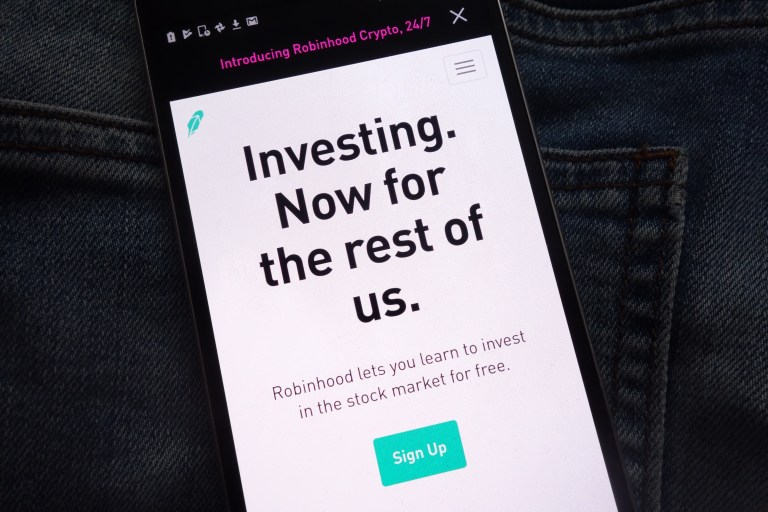Stock-Trading Platform Robinhood Eyes Banking Services

Sources say Robinhood Markets is in talks with regulators about offering banking services to its more than 4 million users.
According to Bloomberg, one source claims that the California-based firm is engaging in conversations with the Office of the Comptroller of the Currency, which charters and regulates all national banks and federal savings associations. The talks are not final and no deal has been made. Jack Randall, a spokesman for Robinhood, declined to comment.
Launched in 2014, Robinhood is a minimalist app that lets users set up an an online brokerage account, transfer funds from accounts at major banks (including Chase, Citi and Band of America) and check the prices of their stocks. The app was specifically targeted at millennials — roughly 80 percent of the Robinhood app’s beta testers were under 30 years old, with an average age of 26.
The company is not allowed to operate like a bank under current rules, but would like to offer banking-like products such as savings accounts through different licenses or partnerships.
If Robinhood were to start offering more traditional banking services, it would follow in the footsteps of FinTech startups like Social Finance and Stash Financial, which have launched similar products in recent months.
The regulations around offering banking services have led most startups to launch products through partnerships or mergers with existing institutions — obtaining a banking license can take several months or even years to finalize.
Robinhood has been busy adding new services in recent months. The firm launched no-fee cryptocurrency trading in February, with more than 1 million people joining the waitlist to trade on the platform when the announcement was first made. Right now, though, the service is only available in five states.
In May, the company received a valuation of $5.6 billion in a new round of funding, with investors including Sequoia Capital, Kleiner Perkins Caufield & Byers, Iconiq Capital and Alphabet Inc.’s growth fund CapitalG.